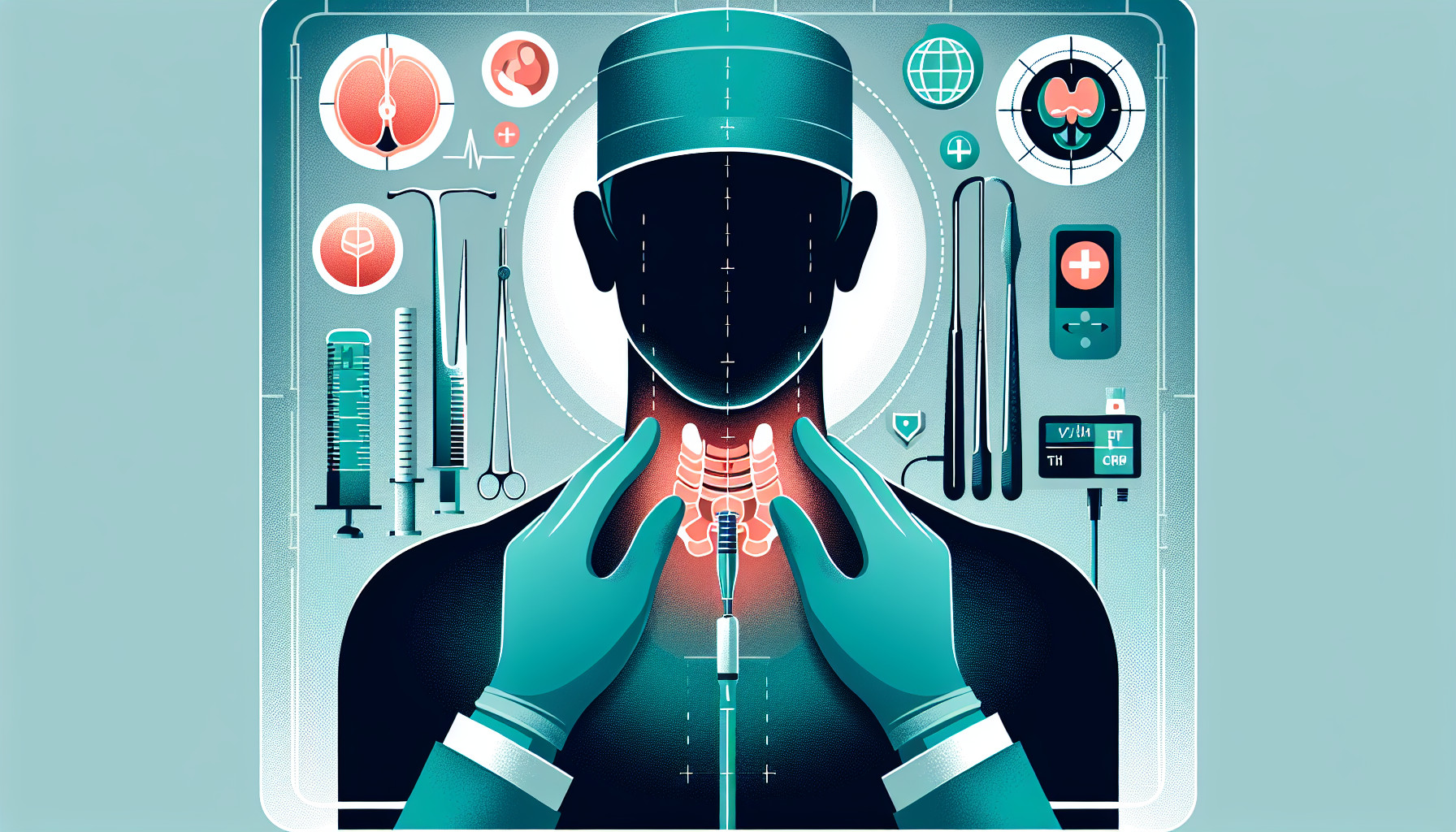Our Summary
This research paper examined the relationship between calcium levels and the likelihood of symptoms and surgical treatment in patients with primary hyperparathyroidism (HPT), a disease often not treated enough. The study looked at patients treated between 2006 to 2015 who had high calcium and parathyroid hormone (PTH) levels. These patients were separated into three groups based on their calcium levels.
The researchers found that the three groups had similar rates of kidney stones, osteoporosis, and reduced kidney function. Most patients (85%) had at least one reason for surgery, but only 29% actually had surgery. Interestingly, the study found that the higher a patient’s calcium levels, the more likely they were to have surgery.
However, the study found that the presence of symptoms did not match up with calcium levels. Even though patients with normal and moderately high calcium levels were just as likely to need surgery, those with normal calcium levels were less likely to have surgery.
FAQs
- What is the relationship between calcium levels and the likelihood of symptoms and surgical treatment in patients with primary hyperparathyroidism?
- How does the severity of calcium levels in a patient affect their likelihood of undergoing surgery?
- Did the study find a correlation between the presence of symptoms and calcium levels in patients with primary hyperparathyroidism?
Doctor’s Tip
A doctor might tell a patient about parathyroidectomy that even if their calcium levels are within normal range, they may still benefit from surgery if they have symptoms related to primary hyperparathyroidism. It’s important to discuss all symptoms and concerns with your doctor to determine the best course of treatment.
Suitable For
Patients with primary hyperparathyroidism who have high calcium and PTH levels, as well as symptoms such as kidney stones, osteoporosis, and reduced kidney function, are typically recommended parathyroidectomy. Additionally, patients with higher calcium levels are more likely to be recommended for surgery compared to those with normal or moderately high calcium levels. Symptoms may not always correlate with calcium levels, as patients with normal calcium levels may still require surgery.
Timeline
Before parathyroidectomy:
- Patient may experience symptoms such as fatigue, weakness, bone pain, frequent urination, and kidney stones
- Blood tests reveal high levels of calcium and parathyroid hormone
- Diagnostic imaging such as ultrasound or sestamibi scan is performed to locate the overactive parathyroid gland
- Endocrinologist or surgeon determines if surgery is necessary based on symptoms and test results
- Patient undergoes pre-operative tests and consultations to prepare for surgery
After parathyroidectomy:
- Patient undergoes surgery to remove the overactive parathyroid gland
- Post-operative recovery period includes monitoring of calcium levels and potential calcium supplementation
- Patient may experience temporary symptoms such as hoarseness, sore throat, and difficulty swallowing
- Follow-up appointments are scheduled to monitor calcium levels and ensure successful surgery outcome
- Patient may experience improvement in symptoms such as fatigue, bone pain, and kidney stone formation
- Long-term follow-up is necessary to monitor calcium levels and potential recurrence of hyperparathyroidism.
What to Ask Your Doctor
- What are the potential risks and complications associated with parathyroidectomy surgery?
- How will my calcium levels be monitored after the surgery?
- What is the success rate of parathyroidectomy in treating primary hyperparathyroidism?
- How long is the recovery process after parathyroidectomy surgery?
- Will I need to take any medication or make lifestyle changes after the surgery?
- Are there any alternative treatments to parathyroidectomy for primary hyperparathyroidism?
- How will parathyroidectomy surgery affect my overall health and quality of life in the long term?
- What is the experience and success rate of the surgical team performing the parathyroidectomy?
- How soon after surgery will I be able to resume normal activities and work?
- Are there any specific dietary or exercise recommendations I should follow post-surgery?
Reference
Authors: Yan H, Calcatera N, Moo-Young TA, Prinz RA, Winchester DJ. Journal: Am J Surg. 2019 Mar;217(3):437-440. doi: 10.1016/j.amjsurg.2018.09.010. Epub 2018 Sep 21. PMID: 30262120
